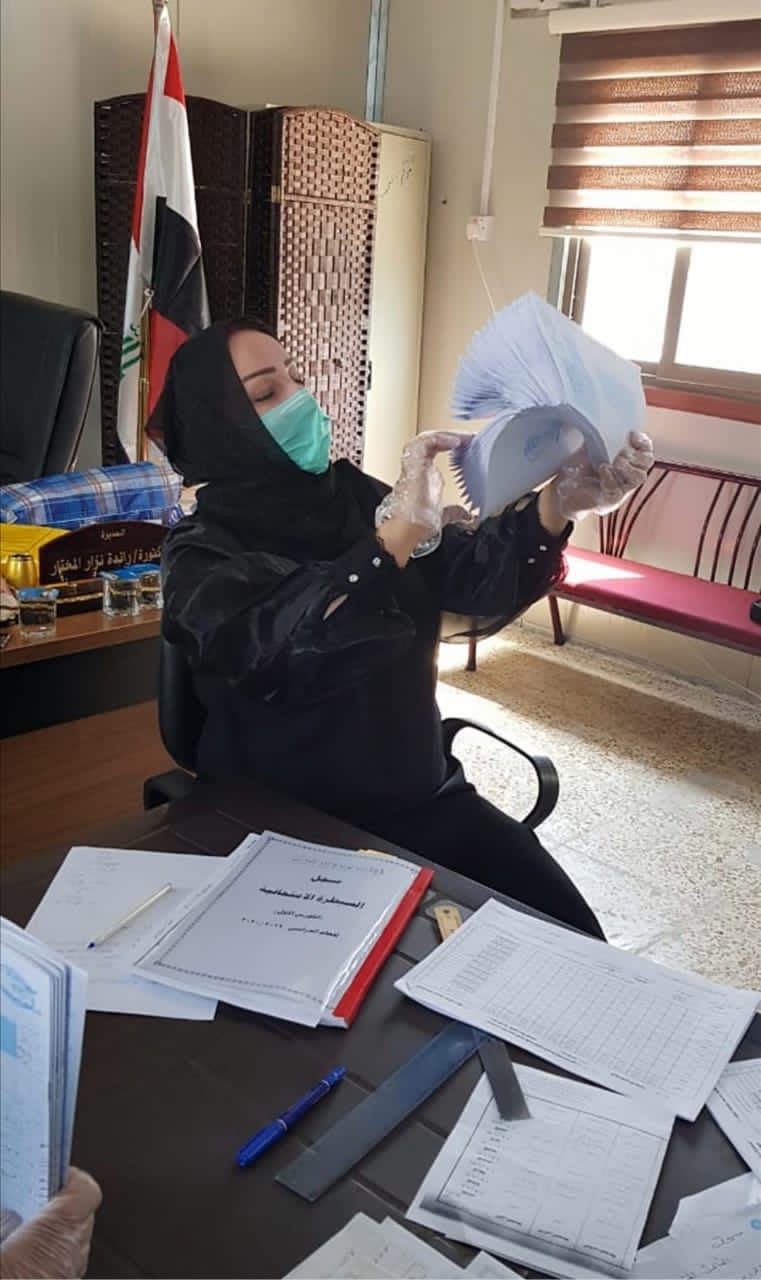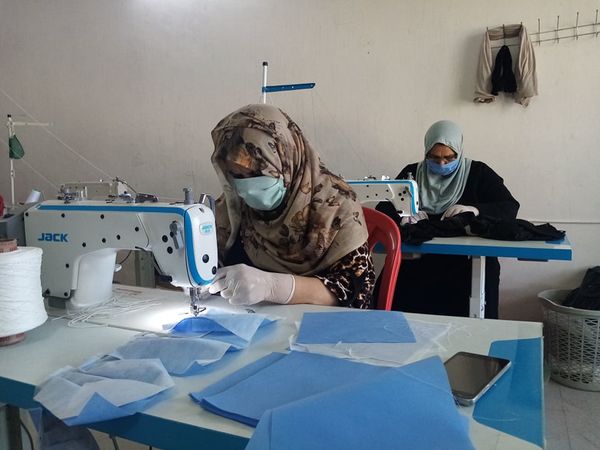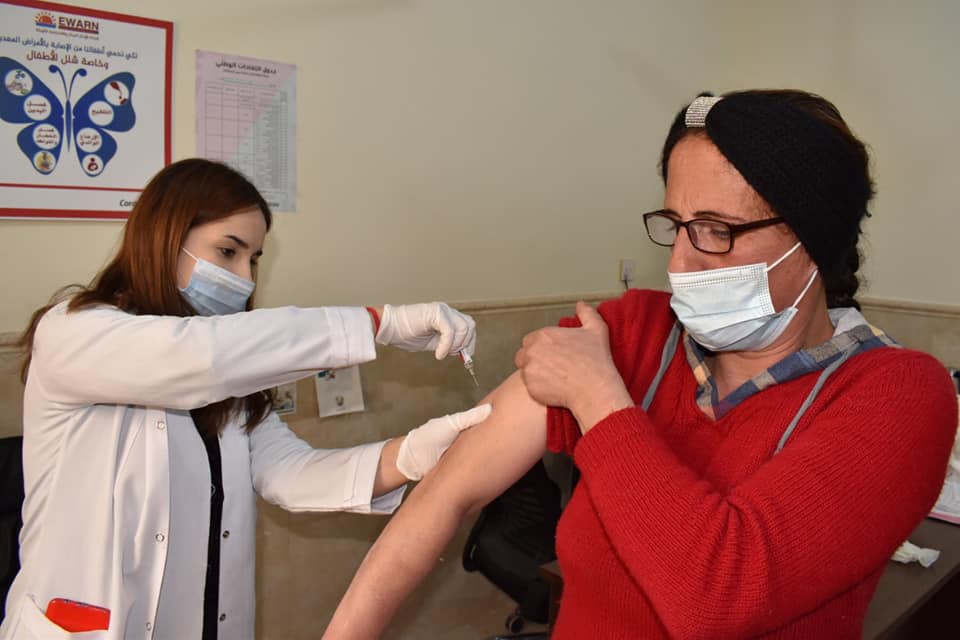During the Coronavirus outbreak, women in Nineveh have fought against the spread of the virus in various ways and have managed to make a difference.
“With the emergence of the first Corona patient, I felt responsible and didn’t want to stand idly by with fear of contracting it myself. That’s why I decided to offer my services at the quarantine department of Battol Hospital in Mosul,” said Srour abdul-Kareem.
At the start of the COVID-19 outbreak, in February 2020, several rumours and fears were going around among people in Iraq. For example, there were rumours that the virus kills most of the infected, or the notion that there was no virus at all, and that it was some political conspiracy.
Srour abdul-Kareem’s task at the hospital has been assisting patients psychologically, dispelling rumours and unfounded fears among patients and informing them about the true nature of the disease.
She told KirkukNow that as the spreading rate of the virus was increasing, she thought limiting her work to the quarantine department was not enough because the COVID-19 is “severe and spreads quickly.”
As incorrect assertions about the virus were being spread on social media, abdul-Kareem started recording informative videos in the hospital and posted them.
One of the videos Srour abdul-Kareem posted about the COVID-19
Rayyan Ghanim, a doctor working at Nineveh Health Directorate, told KirkukNow: “Many of the women activists who were intensively assisting others to overcome their conditions easily, contracted the virus themselves.”
Ghanim says that lack of services and medical necessities at the hospitals has caused extra pressure and doubled the danger on health workers, including women.
Many health workers in Nineveh have contracted the virus, but the directorate has not made any statistics about that public.
“With the outbreak of the Coronavirus and the imposition of curfews, women’s responsibilities increased and they faced difficulties. Because they had to work and do housework and take care of their children at the same time,” said Alhan Muhammad Sa’eed, an education supervisor.
“During the lockdown, my focus was more on online learning. For each teacher, we created an allocated group on social media platforms, so that they can contact their students easily and do their work through them.”
Sa’eed has been aware about all the developments, among which instructions from the Education Directorate, and kept informing her students. At the same time, she helped her own daughter, a first-grader, in getting her education.
After the lifting of the lockdown and the gradual return of normal living conditions, Sa’eed continued helping her students in getting their education.
“We faced many hurdles. We kept insisting on succeeding, and the students managed to achieve appropriate results, especially the 12th graders, whose school year was not wasted. And that was the fruit of the hard work of all the teachers,” Sa’eed added.

Sa’d al-Wazzan, a member of Nineveh Crisis Cell, told KirkukNow: “The role of women in fighting the Coronavirus varied; they had an effective contribution in caring for the patients and in delivering aid, such as distributing food baskets and medicine for patients who have long-term illnesses, in addition to carrying out awareness campaigns.”
He pointed out that one of the activists opened a workshop to produce masks and distributed them to hospitals at cost rates, in addition to donating a portion of it to be distributed among the poor by volunteers.
The activist he mentioned is Layla Barzinji. Her work contributed in combating the pandemic and provided job opportunities for women. They also provided masks for the Health Directorate and the security forces free of charge.
People’s livelihood in Mosul has been severely affected by the pandemic and the subsequent lockdowns.

And activist Dalia al-Ma’mari set up a volunteer team which has managed to distribute 3,800 food baskets to low-income families.
al-Ma’mari also created a charity network consisting of university teachers and others who were willing to donate, and her group also collaborated with the Ministry of Immigration and Displacement in several activities.
The Federal Government imposed lockdown intermittently from February to September 2020, and from then on daily activities were allowed to gradually go back to normal.
More than 600,000 people have contracted the Coronavirus so far. 560,000 of them have recovered. About 13,000 have died.





